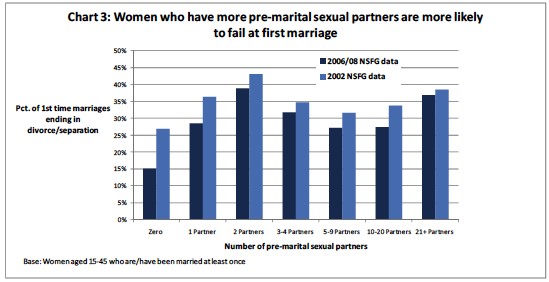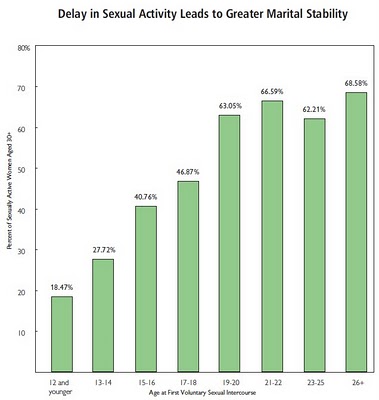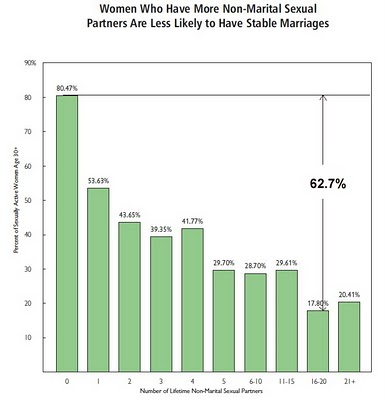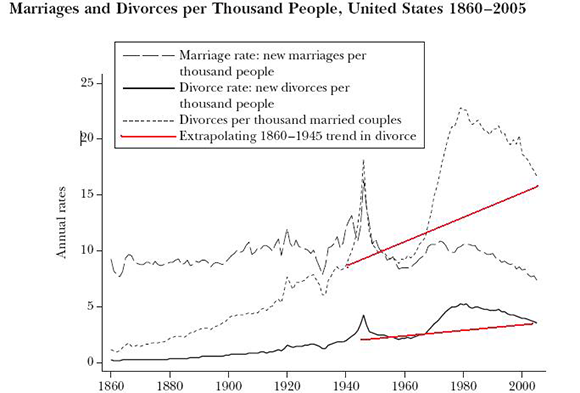Donal wrote a couple posts on men’s SMV and marriage conundrums and women’s complimentary conundrum.
I’m going to focus on the second, in particular. Not wanting to add to Sigyn’s compassion fatigue, I’m not going to talk of how its easier for women to find a marriage partner at this age than men, but rather I’m going to give advice to the young ladies who want to marry young but can’t find a worthy young man to marry.
****
First, the reality: you won’t be able to.
For you, young woman of average beauty in your late-teens or early-20s, it will be almost impossible to find a worthy young man who wants to marry you. The vast majority of men your age are of naturally low value, they are unworthy. Most of those few that aren’t unworthy will either not desire marriage or would be a poor marriage partner.
To be worthy, a man must be a good man; he must also have experience, be able to lead, have a mission, have resources, be skilled, be confident, have positive status, and having a little charm would help as well.
Notice what these all of these but being good have in common:
They all take a long time to develop.
A young man in his early-to-mid-20s will not have had that time. At best, most men will develop this in their late-20s or early-30s. Many men will never develop these.
A good young man near your age will not have discovered his mission yet, he will lack confidence, he will be inexperienced, he will be poor, he will lack status, he will be unskilled, and he probably won’t have developed charm yet. He has likely never been in a position of leadership in his life.
Those that do have status, charm, or confidence at this age will usually have it for the wrong reasons. These will be the petty drug dealers, the college sports stars, the rebel musicians, the budding Casanovas, the frat boys, etc. Most will not be desiring marriage because they will be drowning in easy sex from many fresh, young co-eds (you’re not the only girl trying to find a confident, charming young man) and they would likely make poor marriage partners even if they did.
Now, there will be a very few good young men looking for marriage who have all this. Whether from inheritance, genetic blessing, exceptional parenting, and/or plain dumb luck some good young men will have many or all of these measures of worth, but these men will be very rare indeed. The young Christian sports star (the Tim Tebows of the world) or the grungy-looking worship leader would be the most likely bet.
If you want to have your own Tim Tebow, go back in time and be born a blonde bombshell with a beautiful face and measurements near 36-24-36C.
Don’t have a time machine? You’re not getting a Tim Tebow.
Unless you were born an 8 or a 9 and managed to keep your figure looking smashing, you won’t be getting the worthy young man. These young men are exceedingly rare and will have their pick of the church. Are you the prettiest in your church, your college and career group, and your Christian campus group?
Probably not, otherwise you’d already have one of these men and you wouldn’t be reading this.
Exception: A high-school sweetheart deal. An average young women in high school can snag a higher value man simply by being his first girlfriend and making it so pleasant for him that he marries her right out of high school before he even begins to understand his worth. If you’re reading this, you’ve probably missed that chance, but if you’re still in high school, give it a go; you never know.
****
So, now that you, young woman who is not exceptionally beautiful, know that you will not be able to get a worthy, marriage-minded man near your age, what can you do to get a worthy husband?
There are two options: date older or build one.
Option 1: Date Older
There won’t be a worthy young man your own age, but there will be a few worthy, marriage-minded men in the 28-35 age range.
If you do this, you will essentially be joining the life he will have built up. He will likely be loathe to give up what he has already built, so it will be less a melding of lives together and more you inserting yourself into his pre-built life.
There is nothing wrong with this, but it is what it is.
Also, an age difference to 5-15 years may be looked at askance by society in this fallen age. Be prepared for that.
If you’re fine with both of those go for it. It should be fairly easy; most of these men will be very happy to have a young girl in her late-teens/early-20s interested in them. What man wouldn’t feel proud to have a cute wife 10 years his junior?
Find out where good young men in their late-20s, early-30s hang-out. Then go there, look pretty, be nice, and make yourself available. Or go on a dating site and express an interest in this age group in your profile; a few of the dozens/hundreds of men e-mailing you will be these kinds of man, it’s simply a matter of sorting the wheat from the chaff.
But if marrying a man 5-10 years older than you sounds unappealing, there is a second option: build a worthy man.
****
Option 2: Build a Worthy Man
You won’t be able to find a worthy young man, but you can build one from an unworthy man. This is a 3-step process.
Step One: The Building Clay
Find an honest, good-hearted, marriage-minded young man who displays potential.
Potential is hard to define, but, essentially, is he a decent young man?
Remember, you are looking for a man who has a certain amount of natural virtue; focus on that and ignore the superficial things; you can work on that later.
Some things to look for:
- Is he building for the future? ie.: Is he going to college, working on his own business, or taking trades training?
- Does he have a good relationship with his parents?
- Is he responsible with his money, his time, his gifts?
- Does he express an interest in marriage and children?
- Could he be handsome if he stood up straighter, had a better haircut, and lost those dorky-looking glasses?
- Does he have plans for the future?
- If you’re Christian, does he go to church regularly?
- Do other adults who know him (his boss, church elders, his professors, etc.) respect him and speak well of him?
- Does he have a group of friends who are decent people?
If the answer is yes to most or all of these, he has potential.
Now potential is just that, potential, it is not actuality. He is not going to have everything you want, now. But, if you choose the right base material, you can build the rest into him. So here’s some things to overlook because they will either develop with time, or you will help him develop it:
- He dresses poorly.
- He’s not a leader.
- He’s socially awkward.
- He’s currently poor.
- He plays video games.
Choose the right base material and you can fix all these superficial deficits over time.
If you’re in doubt if the man you’re interested in is good base material, bring him to your parent’s home for a night of dinner and board games. Ask your parents about him afterwards (and demand they be honest). If they like him, you’ve got a decent candidate; if they don’t, dump him.
Step 2: Test Him
So, now you’ve found a decent young man, but he hasn’t proven himself yet, so you’re taking a risk.
Here’s a few simple tests of worthiness for a guy you’ve been dating for a few months or for one of those guys who’s been your close friend with for a while and there’s some mutual interest:
1) Tell him you want to spend a special day together and ask him to plan it. Don’t help him plan, don’t criticize, and go along with whatever he plans. His attitude is more important than what you actually end up doing. If he puts in some planning, pulls off something half-decent, and tries to lead while doing so that’s good. If he sloughs it off and phones you at the last minute asking what you feel like doing and you end up hanging out together as normal, that’s not.
2) Say you’d like to go on a day-long road trip to ???? (some park or attraction within an hour’s drive) and ask him to plan it. Look for the same things as #1.
3) Invite him to help you paint your room; tell him you don’t know what you’re doing. Does he show up prepared to work? Does he take the lead? Does he try to show you how? Is he patient? Does he avoid complaining? Look for his attitude.
4) If you’re planning to move, tell him you don’t have any men to help you (make sure to tell your dad, brothers, and male friends to be busy that day) and don’t know how you’re going to move all this big, heavy furniture by yourself. Ask if he can organize some of his friends to help. If he shows up with a couple friends in tow and takes the lead, you’ve got a keeper on your hands.
5) Have your dad invite him over to work on a project together; tell your dad why and let your dad arrange it. Listen to what your dad says about him afterward.
If he passes a few of these or similar tests, you’ve probably got good base material. It will not eliminate the risk of a dud entirely, but it will minimize the risks.
Onto the next step.
****
Step Three: Build Him
He’s probably a bit dorky, awkward, or weird, but don’t worry, you’re going to change that.
Is he a poor engineering student now? Don’t worry; that means 10 years from now he will be a highly-paid engineer. Just let time take its course.
Does he dress like a dork? No problem. He doesn’t realize he looks like a dork, and he likely really doesn’t care how he dresses (as long as it’s not fruity). He’ll be happy to change for you, if you do it right.
Next time he goes clothes shopping, go with him. Recommend a few things you like; when he tries something on and it looks good in it, make it known. Compliment him on how handsome he is, smile coyly, lick your lips, make a big deal of how handsome, sexy, and manly he looks while rubbing your hand casually but enticingly up his arm. I know it sounds kind of stupid, but it will be almost impossible to go overboard. Most young men very rarely get complimented by cute, young girls, so the rush he’ll get from from your effusive praise will make him ignore such petty things as logic and reality. If possible, convince another female cashier to comment on how handsome he looks in those clothes. He will buy that outfit; if not this time, the next. He might not wear it for a while, but when he does, do it all over again; gush over how handsome he looks in it and get your other female friends to do so as well. Do this for one item a shopping trip; in a few years you’ll have replaced his whole wardrobe, he’ll be looking good, and he’ll think it was all his idea.
One important rule: Do not nag; do not ask or demand he buy or wear the new clothes. That will backfire and create resistance. Simply stay positive and compliment and encourage him; it will work wonders.
Does he have a dorky haircut, stupid-looking glasses, a nerdy watch? Do exactly what you did with the clothes and soon he’ll have contacts, a great haircut, and a stylish watch.
Does he lack confidence? No problem. With a cute, young girl like you telling him what a great man he is every day and supporting him in everything he does, he’ll gain some pretty fast. Nothing boosts a man’s confidence like a pretty young lady’s compliments. Make sure not to criticize him; remain positive.
Does he lack leadership? Don’t worry about it. He may not be a leader now, but when you submit to him, he’ll be forced to lead and, in being forced, will learn to do so. With a cute, young girl, like you, looking to him for guidance, submitting to his decisions, and regularly praising his decisiveness, great decisions, and excellent leadership, he’ll quickly become the dominant leader you’re looking for. Whatever you do, don’t criticize his decisions when he does lead; that will backfire and he will be less likely to lead in the future.
Is he socially awkward? No problem. Get him to read this and this. Talk with him and make him comfortable talking with you. Bring him to hang out in large groups. With you at his side, supporting him in social situations, he’ll slowly gain the social skills you want him to have. A few years from now, you’ll look back and wonder whatever happened to the socially awkward man you once knew.
Does he have less ambition than you like? That’s a bit of a problem, but easily remedied as long as it’s not a complete lack. Encourage him to be proactive (again, no criticism).
Does he idly come up with a decent business idea? “That’s an amazing idea, honey, I’m sure you could make it work.” Then, when out socially with him, mention to your friends/family this great idea he had. Eventually, he’ll try simply because you’ve built so much positive expectation that he would feel horrible about not doing so. Then support him fully as he tries.
Is there a job or schooling opportunity you think he should go for? “Did you hear about this dear. It looks like an amazing opportunity and I think you’re so good at this that you’d be a shoe-in.” Then, when he does try, support him fully and unreservedly. When he gets the job, praise him and tell him how you knew he’d do it.
Again, do not nag. Remain positive.
Another important rule: If he tries and fails, do not complain about his failure or criticize him. A simple “some things are not meant to be” or “circumstances just weren’t right” is okay. Follow that up with a “You’re so amazing, I’m sure next time you’ll do it. Have you seen this? I’m sure you’d be great at it.”
Does he play too many video games? Understand an hour or two a day is not that big a deal. If he plays a lot more than that: find out what he likes doing otherwise, then sign you both up for it, or get him and one of his friends to sign up for it if it’s a male activity. Be supportive and positive, don’t nag. “You know how you’ve always wanted to ????, well I’ve signed us up. It will be so much fun doing this with you.”
Is he in poorer shape than you’d like? Cook him some good meals. Then join a gym, go a couple times, and mention how you wish you had someone to go with. If guys hit on you at the gym, be sure to let slip how you wish “there was someone to go to the gym with as guys are always hitting on me.” At other times mention how much more handsome he would look with a little less weight or a little more muscle.
Eventually, he’ll come with you. After the workout, mention how hot he looks when he’s lifting or dripping with sweat or something related to working out. After he’s been coming to the gym with you for a while, take care to notice that new muscle (“it feels so big and hard“, said admiringly while putting your hand over it) or the lost weight. After that, he’ll keep going with you.
You’ll notice a them through all of this: positivity and support.
For most decent men, they will rise up to what is expected of them. If you go into a relationship expecting the best out of a good man and encouraging him to reach his full potential, he will rise to the challenge. There is nothing in life that will drive a man to self-improvement like having a cute, young woman support and compliment him in doing so.
Young lady of average looks, if you want to marry a man your own age who will be worthy:
Choose a good man with potential, test him, then build him up.
Do all this and in a few years you’ll be married to worthy man of whom you’ll be proud and he will love more than you could possibly understand for helping make him so.
****
One other thing: make sure to improve yourself so that good men are attracted to you.
- Keep fit; little will drive men off more than being fat.
- Be happy and pleasant. Most men like a girl who’s positive and enjoyable to be around.
- Be of good character. A man of good character wants a wife of good character.
See here and here for other things a good young man might be looking for in a wife.
****
Finally some theory.
Today, marriage is treated as a capstone. People think getting married is something they do once they’ve completed all the others bricks in the wall.
“Once I finish college, get a good job, and buy a house, then I’ll be ready for marriage.”
This is not how marriage is supposed to be. Marriage is supposed to be a cornerstone.
Marriage is about building the wall together. The proper attitude is:
“We’ll get married, we’ll support each other through college, we’ll support each other in starting our careers, and then we’ll buy a house together and make a family. We’ll build a life together.”
When I recommend building a man, this is what I am talking about.
You don’t have to try to go after the fully formed man who has it all together; you can marry the solid, young guy who has unrealized potential.
He may not be much now, but if you join to him while young and build a life together as he becomes a fully realized man, he will love you more than you can imagine, for he will not be able to imagine a life apart from you, because you will have been there with him building the wall together.
That is my advice to both young men and young women. Find a good person while young, if you can, and build a life together.




